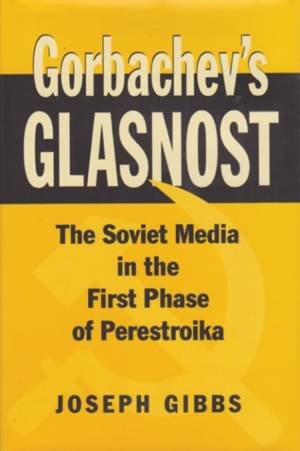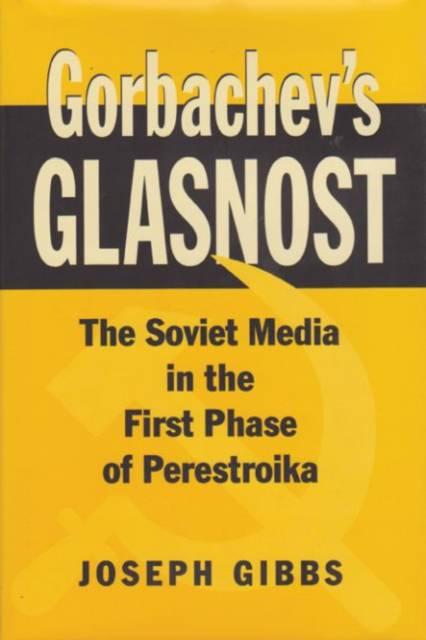
- Retrait gratuit dans votre magasin Club
- 7.000.000 titres dans notre catalogue
- Payer en toute sécurité
- Toujours un magasin près de chez vous
- Retrait gratuit dans votre magasin Club
- 7.000.0000 titres dans notre catalogue
- Payer en toute sécurité
- Toujours un magasin près de chez vous
42,95 €
+ 85 points
Description
Glasnost, most commonly translated into English as "openness," was a key concept of Mikhail Gorbachev's administration as general secretary of the Communist Party of the Soviet Union. This adapted tool of Leninist media control became not only a part of perestroika, Gorbachev's plan to rejuvenate Soviet ideology during the 1980s, but also an independent concept that redefined how the USSR's media were employed as an instrument of leadership.In Gorbachev's Glasnost: The Soviet Media in the First Phase of Perestroika, author Joseph Gibbs traces the development of glasnost as both concept and policy, from the Leninist idea of "criticism and self-criticism" to Gorbachev's attempt at modernizing and reinterpreting that doctrine to fit his own political goals and aspirations.Using analysis drawn from primary sources and interviews, Gibbs examines how glasnost changed in definition and application between 1985 and 1988. Gorbachev's Glasnost shows how official reportage coincided with Gorbachev's political agenda and how, in his capacity of general secretary, he expanded media freedoms in order to employ the press against his enemies. Subsequent chapters detail how, with each move to broaden the power of glasnost to meet Gorbachev's political needs, the media simultaneously gained strength and the opposition found an avenue to be heard, irrevocably changing Soviet society and politics.Gorbachev's Glasnost provides a clear, Western interpretation of what was perhaps the Soviet Union's most influential and controversial reform. Anyone interested in the events that led to the fall of communism and the breakup of the Soviet Union, as well as those interested in the effects of mass media on politics and culture, will find it intriguing and solidly researched.
Spécifications
Parties prenantes
- Auteur(s) :
- Editeur:
Contenu
- Nombre de pages :
- 168
- Langue:
- Anglais
- Collection :
- Tome:
- n° 9
Caractéristiques
- EAN:
- 9780890968925
- Date de parution :
- 01-08-99
- Format:
- Livre relié
- Format numérique:
- Genaaid
- Dimensions :
- 164 mm x 244 mm
- Poids :
- 458 g

Les avis
Nous publions uniquement les avis qui respectent les conditions requises. Consultez nos conditions pour les avis.






